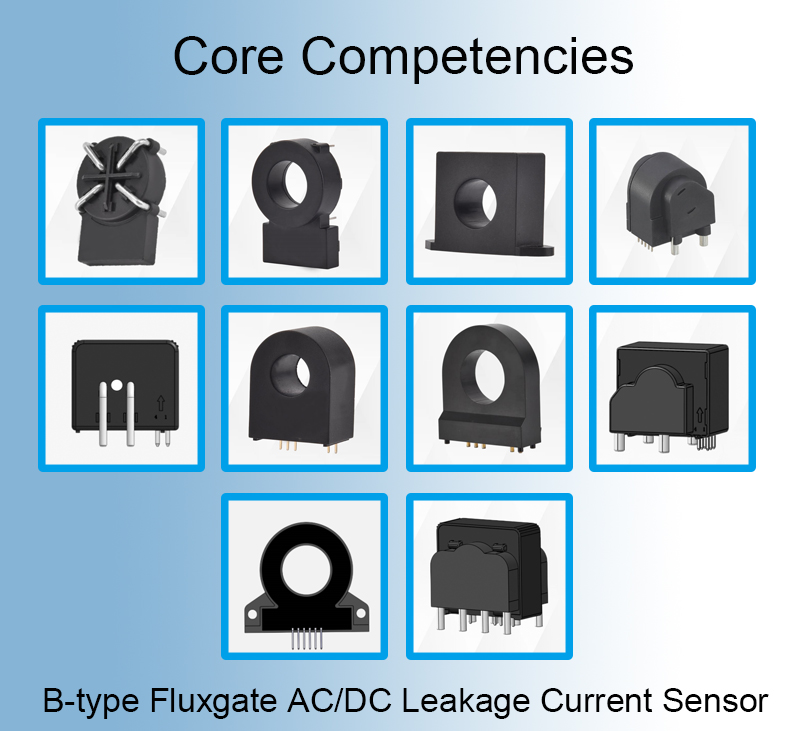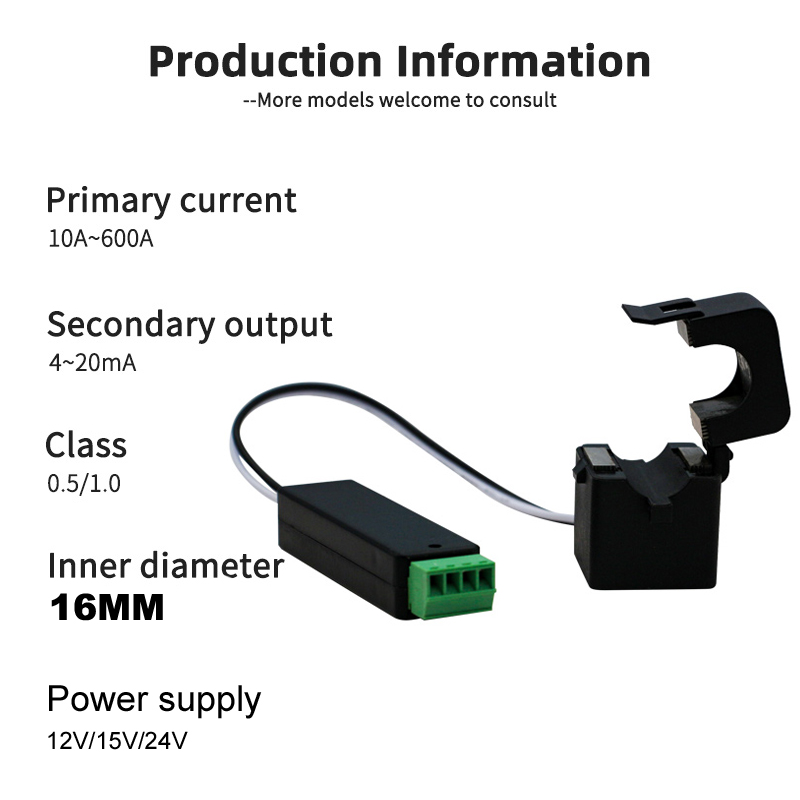News | company news | Jun 03,2025
Current sensor technology in Korean IoT gateway
As a key hub connecting physical devices and cloud platforms, the Korean IoT gateway plays a core role in the construction of smart cities, industrial IoT and consumer applications in Korea. Its development integrates technologies such as 5G communications, edge computing, and multi-protocol compatibility, and combines the collaborative promotion of the government and enterprises to form a unique technical path and application ecology. The following is an analysis of the core features and applications of the Korean IoT gateway:
Core technical features
Deep integration of 5G and RedCap technologies
South Korea’s three major operators (SKT, KT, and LG U+) jointly built 5G SA networks and promoted IoT gateways to support **5G RedCap** (a medium-speed IoT standard that reduces complexity and power consumption). For example, SKT uses RedCap for battery optimization of wearable devices, and LG U+ uses it in service robots and charging stations, significantly reducing equipment costs and extending battery life.
At the hardware level, the Fibocom module **FG370-KR** (based on the MediaTek T830 platform) is compatible with the Korean 5G frequency band, supports 7Gbps downlink rate and high power uplink enhancement (HPUE), providing the gateway with high-speed, low-latency backbone communication capabilities.
Multi-protocol compatibility and edge intelligence
Gateways generally support heterogeneous network integration. For example, Seoul’s smart pole (S-Pole) integrates Zigbee, BLE, LoRa and other protocols, and collects 17 types of environmental data (particulate matter, temperature and humidity, pedestrian flow, etc.) through built-in sensors, and completes preliminary processing at the edge before uploading it to the cloud.
Enterprise solutions such as the Grib smart gateway use the OneM2M/AllJoyn protocol, are compatible with Z-Wave/Zigbee devices, enable unified control of cross-brand smart home devices, and reduce cloud dependence through localized security logic (such as linking gas valves and cameras).
Security architecture enhancement
– To address the security pain points of IoT, the Korean gateway solution embeds hardware-level encryption modules. For example, the Grib gateway has passed LG U+’s 6-month extreme scenario test (such as stability in high humidity environments) to ensure industrial-grade reliability.
Typical Application Scenarios
Smart city infrastructure
S-DoT (Style Data Sensor Network): 1,100 IoT nodes are deployed in Seoul to aggregate environmental data through gateways and make it public to citizens for policy making (such as air quality warnings and epidemic crowd flow analysis).
Smart Pole (S-Pole): Integrates street lighting, monitoring, Wi-Fi, charging and other functions into a single gateway, and has been installed in 300 locations. For example, the gateway deployed around the primary school in Jiulao District links the ground traffic lights through pedestrian detection sensors to reduce traffic accident rates.
Consumption and public services
Smart Home: LG U+’s “Home Chat” gateway enables voice control of home appliances; Grib gateway connects over one million homes, providing security and energy management services.
Environmental incentive system: such as the “Oysterable Recycling Program”, which records recycling behavior through gateway scanning barcodes and redeems points. It covers 300 stations in 20 cities and promotes the circular economy.
Industrial and B2B sectors
Smart Factory: The government-driven “Banyue and Shihua Industrial Park Cluster” project uses gateways to implement equipment status monitoring and predictive maintenance, increasing the penetration rate of the Internet of Things in the manufacturing industry.
Internet of Vehicles and Autonomous Driving: KT’s “Mozen” vehicle gateway provides real-time traffic management, while smart poles deploy C-ITS communication modules to support vehicle-road collaboration.
Main technical types and characteristics of Heyi current sensors
Fluxgate Sensor HYCA series
Principle: Current is measured through magnetic field induction, supporting AC/DC mixed measurement.
Advantages: non-contact measurement, low power consumption, high isolation (enhanced safety), suitable for high voltage scenarios (such as industrial motors, electric vehicle charging).
Application: Charging module (such as electric vehicle charging pile) and gateway power monitoring in Korean smart pole (S-Pole).

Two-wire system Current transducer
Typical products: KCT-2L current transducer series (such as KCT-16 2L 100A/ DC 4-20mA ).
Features: high accuracy (error <0.1%), low temperature drift, suitable for industrial gateways that require precise current monitoring.


Open loop vs closed loop structure
Open-loop sensor: low cost, small size, suitable for battery-powered lightweight gateways (such as consumer-grade IoT devices), but the accuracy is greatly affected by temperature.
Closed-loop sensor: high linearity, fast response, used in industrial automation gateways (such as factory PLC control)
Challenges and Trends
Structural bottleneck: B2B accounts for more than 80% of the Korean IoT market, while B2C accounts for only 5.7% (such as medical care/smart home). Consumer-side costs need to be further reduced.
Technology evolution direction:
AIoT integration: The gateway embeds lightweight AI models (such as the NPU module of Fibocom FG370-KR) to achieve local real-time decision-making.
RedCap Scaling: Entering commercial trials in 2024, aiming to cover medium-speed scenarios such as logistics tracking and wireless monitoring.
--- END ---

Jan 22, 2026
People use Current transmitter. Why do people use transmitters, in the chillers the air compressors, the generators and the IoT systems? In systems I see chillers, in commercial buildings air compressors in factories and generators, in data centers. The chillers, the air compressors and the generators all have one thing in common. In short devices… Continue reading Why Current Transmitter Matter in Chiller, Air Compressor, and Generator

Jan 19, 2026
I am wondering why the LMZ current transformer gets selected over and over for the MEA/PEA project, in Thailand. If you’ve worked on power projects in Thailand, you’ll likely encounter two names: MEA (Metropolitan Electricity Authority) and PEA (Provincial Electricity Authority). In my work, on the power distribution renovation in downtown Bangkok and the transformer… Continue reading Why HYLMZW4 current transformer is Trusted in MEA/PEA

Jan 14, 2026
¿Por qué los transformadores de corriente RECT pueden ser seleccionados en proyectos de las empresas eléctricas de Ecuador? Un análisis técnico basado en Empresa Eléctrica Quito, Cotopaxi, Riobamba y Ambato En los sistemas de distribución eléctrica de América Latina, y especialmente en Ecuador, las empresas eléctricas siguen criterios muy claros al seleccionar equipos de medición… Continue reading Precisión Extendida y Medición Confiable para Empresas Eléctricas